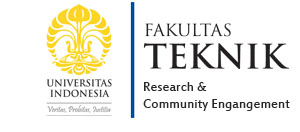| Authors | Roetzel, W. , Putra, N, Das, S.K. |
|---|---|
| Publication Name | International Journal of Heat and Mass Transfer |
| Abstract | Common fluids with particles of the order of nanometers in size are termed as 'nano-fluids' which have created considerable interest in recent times for their improved heat transfer capabilities. With very small volume fraction of such particles the thermal conductivity and convective heat transfer capability of these suspensions are significantly enhanced without the problems encountered in common slurries such as clogging, erosion, sedimentation and increase in pressure drop. This naturally brings out the question whether such fluids can be used for two phase applications or in other words phase change in such suspensions will be assistant or detrimental to the process of heat transfer. The present paper investigates into this question through experimental study of pool boiling in water-Al2O3 nano-fluids. The results indicate that the nano-particles have pronounced and significant influence on the boiling process deteriorating the boiling characteristics of the fluid. It has been observed that with increasing particle concentration, the degradation in boiling performance takes place which increases the heating surface temperature. This indicates that the role of transient conduction in pool boiling is overshadowed by some other effect. Since the particles under consideration are one to two orders of magnitude smaller than the surface roughness it was concluded that the change of surface characteristics during boiling due to trapped particles on the surface is the cause for the shift of the boiling characteristics in the negative direction. The results serve as a guidance for the design of cooling systems with nano-fluids where an overheating may occur if saturation temperature is attained. It also indicates the possibility of such engineered fluids to be used in material processing or heat treatment applications where a higher pre-assigned surface temperature is required to be maintained without changing the fluid temperature. |
| Publisher | ELSEVIER |
| ISSN | 00179310 |
| Page | 851-862 |
| Volume | 46 |
| Impact Factor (JCR) | 2.857 |
| SJR | 1.749 |
| Ranking Quartile | Q1 |
| Website | http://www.sciencedirect.com/science/article/pii/S0017931002003484 |
Pool boiling characteristics of nano-fluids
LATEST POST
9 Peneliti FTUI Sukses Memperoleh Hibah RIIM-BRIN 2025 pada Kompetisi Eksternal Batch Ketiga
FT UI Bantu Pulihkan Aceh Tengah, Padukan Misi Kemanusiaan dengan Mitigasi Berbasis Teknologi
CALL FOR PROPOSAL: Penerimaan Hibah Seed Funding Publikasi FTUI 2025
CALL FOR PROPOSAL: Penerimaan Hibah Osaka Gas Tahun 2025
6 Dosen Fakultas Teknik Universitas Indonesia Catatkan 8 Paten
POPULAR NEWS
LATEST VIDEOS
LOGIN






